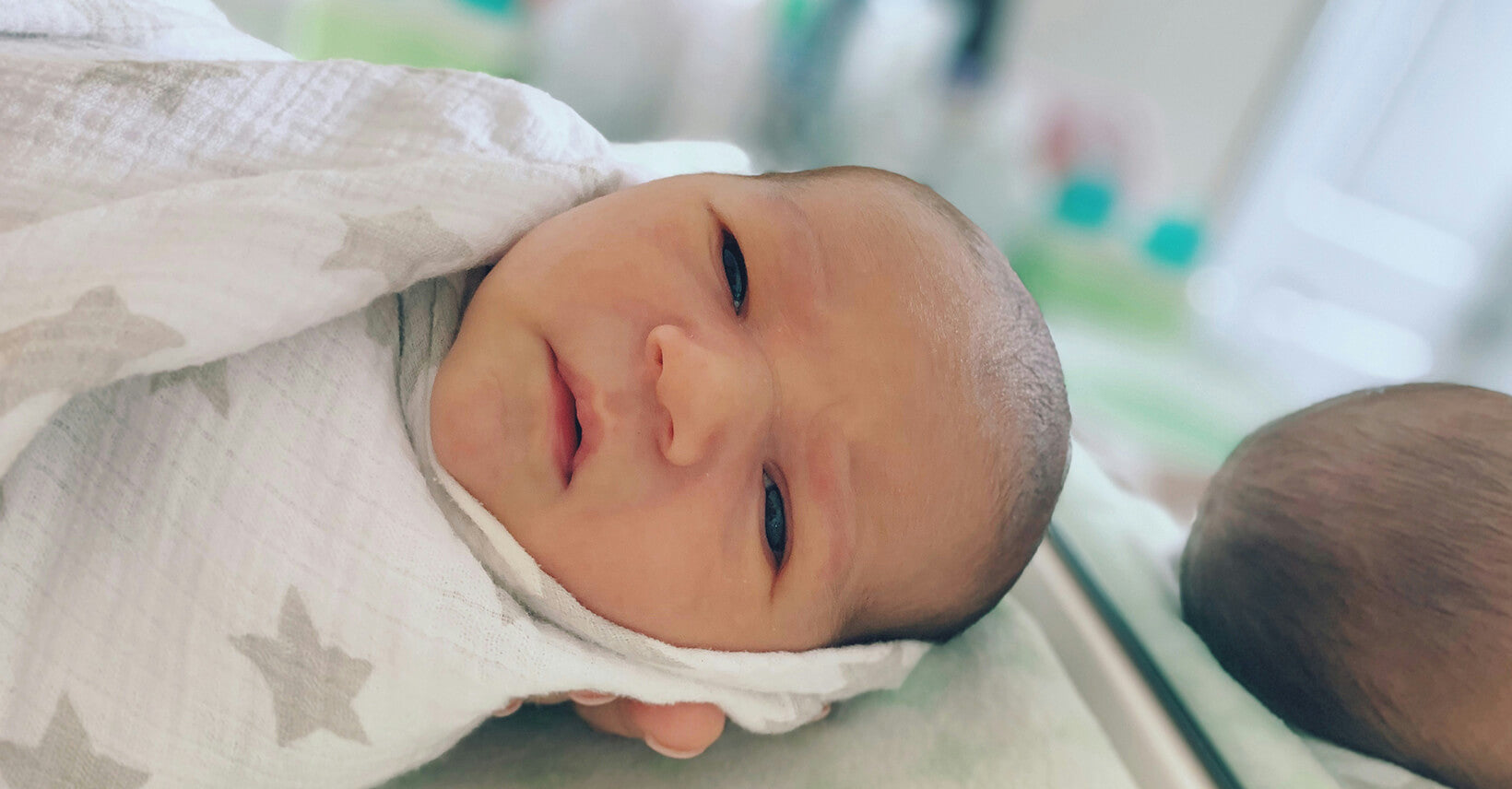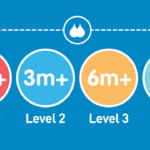Babies often sound congested. Yet, there may be no visible mucus.
This can puzzle many new parents. Understanding why your baby sounds this way is important. It can be due to various reasons like dry air, allergies, or a cold without mucus production. Babies have tiny nasal passages, making them more sensitive.
Their breathing can sound noisy or congested even when they’re healthy. Sometimes, it’s just normal baby sounds. As parents, it’s natural to worry. Knowing the causes of congestion without mucus helps ease your mind. Plus, it guides you on when to seek medical advice. This understanding ensures your baby remains comfortable and healthy. Let’s explore why your baby might sound congested, helping you gain peace of mind.
Common Causes Of Baby Congestion
Parents often worry when their baby sounds congested but shows no mucus. This concern is common and usually not serious. Understanding the causes can help ease parental anxiety. Several factors contribute to baby congestion without mucus.
Nasal Passages Development
Babies have small nasal passages. These passages are still developing. This development can cause congestion. Their noses can get blocked easily. Even a tiny amount of mucus can cause a stuffy sound. It doesn’t mean they have a cold or serious problem. As they grow, their nasal passages widen. This helps reduce congestion.
Environmental Irritants
Environmental irritants play a significant role in congestion. Dust, smoke, or strong smells can irritate. Babies are sensitive to these irritants. Their bodies react by making breathing sounds congested. Keeping the baby’s environment clean helps. Avoid smoking and strong perfumes around them. Fresh air reduces irritants indoors.

Credit: www.healthline.com
Differences Between Congestion And Mucus
A baby’s congested sound without mucus might be due to swollen nasal passages. This swelling can cause breathing difficulties. It often results from dry air or allergies, affecting airflow but not always producing visible mucus.
Understanding the differences between congestion and mucus can be a puzzling task for parents. You might hear your baby making snuffling noises, but when you check their tiny nose, there’s no visible mucus. This can leave you wondering what’s really happening inside your baby’s nasal passages.Understanding Congestion
Congestion refers to the sensation of stuffiness and difficulty in breathing through the nose. This can happen when the nasal tissues are swollen or inflamed. Think of congestion as a traffic jam in the nose, where everything feels blocked, but you can’t see the cars causing it.Babies, with their tiny nasal passages, can sound congested even when there is no actual mucus present. Sometimes, dry air or irritants like dust can lead to congestion without mucus production.Role Of Mucus
Mucus plays a critical role in keeping your baby’s nose and airways healthy. It traps dust, germs, and other particles, preventing them from entering the body. When you hear the word mucus, you might think of a runny nose, but mucus doesn’t always mean your baby is sick.Mucus production can increase when your baby is exposed to cold air or allergens, but it can also be part of their body’s natural defense mechanism. Imagine it as a sticky barrier keeping unwanted visitors away from your baby’s delicate respiratory system.So, why does your baby sound congested without visible mucus? It could be the body’s response to dry air or environmental factors. Ensuring proper humidity in your home and keeping your baby hydrated can often help.Does your baby sound congested at certain times of the day? Observing patterns can provide clues and help you address the issue more effectively.By understanding these concepts, you can better navigate your baby’s health and comfort. Don’t hesitate to reach out to a healthcare professional if you’re concerned about your baby’s congestion.Signs Of Non-mucus Congestion
Parents often hear their babies sounding congested without visible mucus. This can be confusing. Understanding the signs of non-mucus congestion helps. It allows you to identify and address your baby’s needs. Some babies experience noisy breathing or disrupted sleep. These are common indicators of non-mucus congestion.
Noisy Breathing
Noisy breathing is a key sign of congestion in babies. It might sound like snoring or wheezing. These sounds often occur during feeding or sleeping. The noise comes from narrow airways. Babies have smaller airways than adults. This makes any restriction more noticeable. Listen closely to your baby’s breathing patterns. Noisy breathing without mucus might need attention.
Sleep Disruptions
Congestion can disrupt your baby’s sleep. They might wake often or be restless. Sleep disruptions can affect their mood and energy. Babies need restful sleep for growth. Non-mucus congestion can lead to frequent waking. Notice if your baby struggles to settle back to sleep. This might indicate discomfort from congestion.

Credit: kaiyababy.com
When To Seek Medical Advice
Recognizing when to seek medical advice for your congested baby is crucial. Babies often sound congested due to narrow nasal passages. Yet, sometimes, the situation requires professional guidance. This section helps you identify symptoms that need a doctor’s attention.
Persistent Symptoms
If your baby’s congestion persists for several days, consult a pediatrician. Chronic congestion might indicate an underlying issue. Regular monitoring is essential. Keep track of any changes in behavior or symptoms.
Breathing Difficulties
Breathing difficulties are a serious concern. If your baby struggles to breathe, seek immediate medical help. Watch for signs like rapid breathing or flaring nostrils. These symptoms require urgent attention. Always prioritize your baby’s comfort and safety.
Home Remedies For Relief
Babies may sound congested due to narrow nasal passages, even without mucus presence. Dry air or irritants can also cause this. Simple home remedies like using a humidifier or saline drops can help ease breathing.
Welcoming a baby into your life is a joyous experience, but it can also come with its share of concerns. One common issue many parents face is their baby sounding congested, even without visible mucus. Understanding how to provide relief at home can ease your worries and help your little one breathe easier. Here are some practical remedies you can try in the comfort of your home.###Humidifiers And Steam
A humidifier can be a game-changer in your baby’s room. Adding moisture to the air can help soothe their breathing passages. Ensure you clean the humidifier regularly to prevent mold and bacteria buildup.Try placing a warm, wet towel near your baby’s crib. The steam generated can help alleviate congestion. Remember, never leave your baby unattended with any hot or steaming object nearby.###Proper Hydration
Keeping your baby well-hydrated is crucial. Fluids help thin out any mucus that might not be visible but is present.If your baby is breastfeeding, offer the breast more frequently. If they’re on formula, ensure they’re getting enough feeds. For older infants, small sips of water can also assist in maintaining hydration.Do you feel concerned about over or underhydrating your baby? Trust your instincts and keep an eye on wet diapers as a hydration indicator. If you suspect dehydration, consult with your pediatrician.Implementing these simple home remedies can provide much-needed relief. Always observe your baby’s response and adjust accordingly. Remember, your intuition is a powerful tool in caring for your child.Preventive Measures
Preventive measures help ensure your baby breathes comfortably. Even without visible mucus, congestion can occur. Understanding how to prevent this is key. This section explores strategies to keep your baby’s airways clear.
Maintaining Clean Air
Clean air is vital for your baby’s health. Use air purifiers to remove allergens. Ensure proper ventilation in your home. Regularly clean and vacuum to reduce dust. Avoid smoking indoors. Limit exposure to strong odors and chemicals.
Regular Check-ups
Routine check-ups ensure your baby stays healthy. Pediatricians can identify breathing issues early. Schedule regular visits even if your baby seems fine. Discuss any concerns you have during these appointments. Early detection helps prevent complications.
Role Of Allergies In Congestion
Understanding the role of allergies in your baby’s congestion can be both enlightening and reassuring. Allergies can cause congestion even if there’s no mucus present, making it seem like your little one is struggling to breathe. Identifying the cause is crucial, as it helps in managing your baby’s discomfort effectively and provides peace of mind for worried parents.
Identifying Allergens
Have you ever noticed your baby seems more congested after a visit to the park or during certain seasons? This could be due to pollen in the air. Babies can be sensitive to environmental allergens like dust mites, pet dander, or mold. Pay attention to the timing and location of your baby’s congestion to pinpoint potential allergens.
Tracking these patterns can be insightful. Consider keeping a diary of your baby’s symptoms, noting any correlation with changes in environment or exposure to specific items. This can help narrow down possible allergens causing the congestion.
Managing Allergic Reactions
Once you’ve identified the allergens, managing allergic reactions becomes easier. Simple changes, like using air purifiers, can significantly reduce allergens in your home. Regularly washing your baby’s bedding and toys can help minimize dust mites.
Consulting with a pediatrician can provide additional strategies tailored to your baby’s needs. They might recommend allergy tests or suggest over-the-counter remedies that are safe for infants. What steps have you taken to alleviate your baby’s symptoms?
As a parent, proactive management of your baby’s environment is key. Making small adjustments can lead to big relief for your little one, keeping them comfortable and congestion-free. Have you found any unexpected solutions that worked wonders for your baby?
Parental Concerns And Myths
Parents often worry when their baby sounds congested. It’s a common concern. Many wonder why there’s no visible mucus. This confusion can lead to stress. It also leads to seeking unnecessary medical advice. Understanding the underlying reasons helps. It eases parental anxiety. Let’s explore some misconceptions and provide reassurance.
Common Misconceptions
Many parents think congestion means illness. That’s not always true. Babies often sound congested due to narrow nasal passages. Their breathing may sound heavy. It doesn’t always indicate sickness. Some believe congestion means allergies. This isn’t always accurate. Babies rarely have allergies in the first year.
Another myth is that congestion needs medication. Not always necessary. Often, congestion is normal and temporary. Overmedication can cause harm. Parents also think mucus must be present. But that’s not the case. Dry air can cause congestion sounds without mucus.
Reassurance For Parents
Understanding these myths provides comfort. Babies have small nasal passages. They can sound congested without mucus. It’s normal. Parents need not worry immediately. Observe for other symptoms. Fever, difficulty breathing, or a cough need attention. If absent, it’s likely normal congestion.
Keeping the air humid can help. Use a humidifier in the baby’s room. This eases the congestion sound. Keep the baby hydrated. It ensures their airways remain clear. Trust your instincts but don’t panic. Knowledge helps in making informed decisions.

Credit: www.healthline.com
Frequently Asked Questions
Why Is My Baby So Congested But No Snot?
Babies often experience congestion due to small nasal passages. Dry air or allergens can cause congestion without visible snot. Gentle saline drops or a humidifier can help alleviate discomfort. Always consult a pediatrician if you’re concerned about persistent symptoms.
Why Does My Baby’s Breathing Sound Like A Stuffy Nose?
Babies often breathe noisily due to small nasal passages. Dry air, mucus, or mild congestion can cause a stuffy sound. Ensure proper humidity and consult a pediatrician if concerned. Keep baby’s nostrils clear with a saline solution or nasal aspirator.
Why Is My Child Always Congested But Not Sick?
Your child might be congested due to allergies, dry air, or irritants like smoke. Check for dust, pet dander, or strong odors at home. Ensure proper humidity and regular cleaning. If the problem persists, consult a pediatrician for a thorough evaluation.
How To Decongest A Baby?
Use a humidifier to moisten air. Gently suction mucus with a bulb syringe. Elevate baby’s head during sleep. Keep baby hydrated with fluids. Consult a pediatrician if symptoms persist.
Why Does My Baby Sound Congested Without Mucus?
Babies often sound congested due to narrow nasal passages. Dry air or allergies can also cause this.
Conclusion
Understanding your baby’s congestion can ease your worries. Babies often sound congested without mucus due to narrow nasal passages. Dry air or allergies might also be the cause. Keep an eye on symptoms. Ensure your baby stays hydrated. Use a humidifier for added comfort.
Consult a doctor if concerned. Simple steps can help your baby breathe easier. Trust your instincts. Your baby’s health is a priority. Stay informed and attentive. You got this. Small changes can make a big difference. Remember, you’re not alone.
Many parents face similar concerns. Stay calm and supportive.





